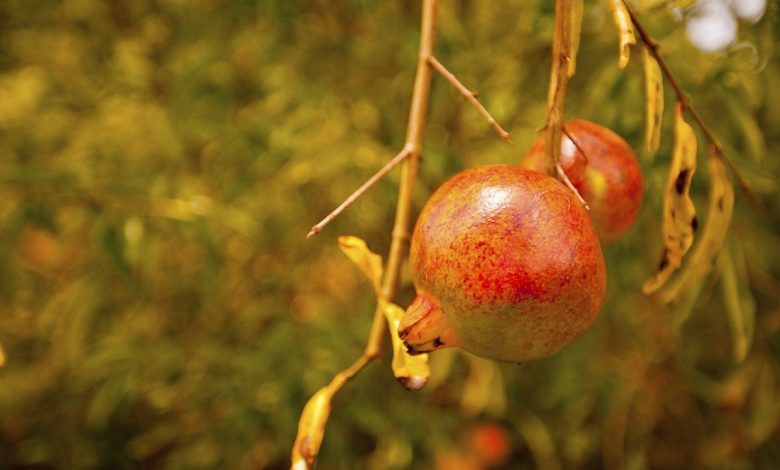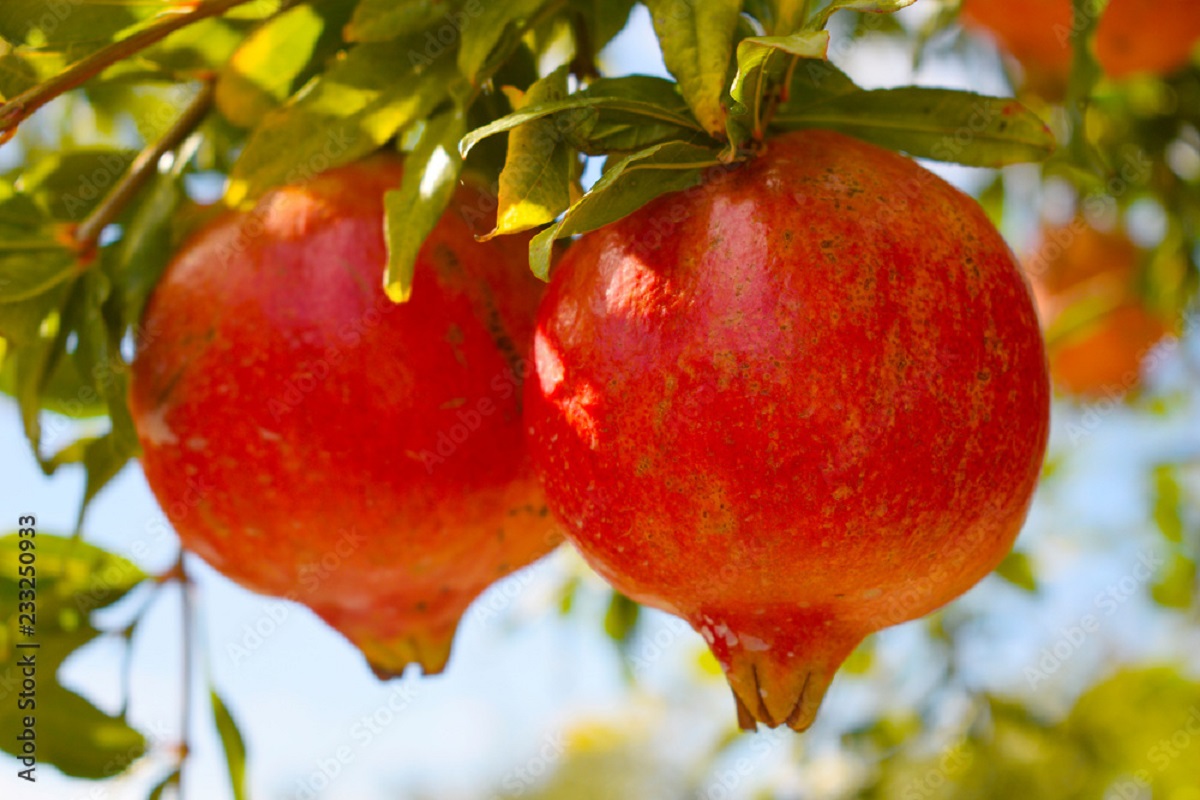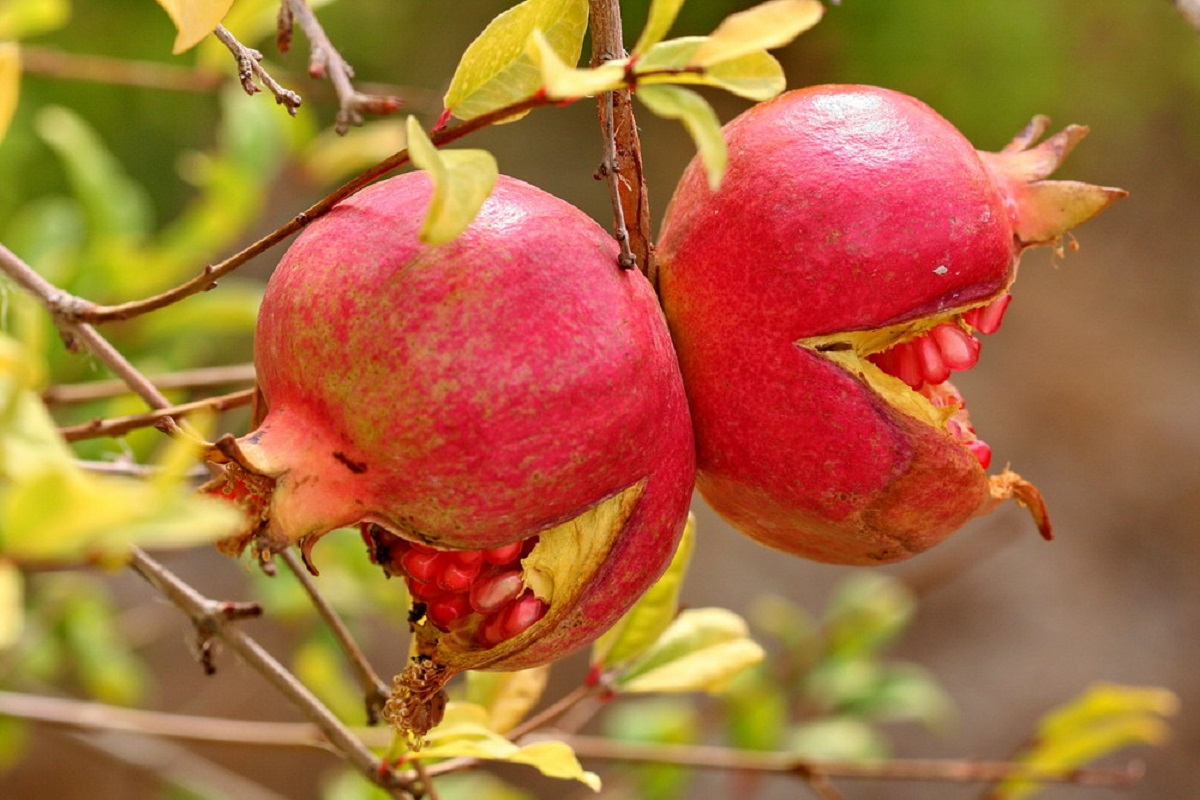The Health Benefits Of Eating Pomegranates In Autumn

Eating Pomegranates In Autumn: Autumn is a season of change, where nature transitions into a period of renewal and preparation for the colder months.
With this change, our bodies often require extra nourishment to boost immunity, enhance energy levels, and prepare for the challenges of winter. Among the various fruits available in this season, the pomegranate stands out as a nutritional powerhouse that deserves a special place in our diets. Not only does this vibrant fruit symbolize prosperity and health, but it also offers a wide array of health benefits that are particularly suited to the needs of autumn.
Benefits Of Eating Pomegranates In Autumn
Rich In Antioxidants

Eating Pomegranates In Autumn, One of the primary reasons to include pomegranates in your autumn diet is their rich antioxidant content. Pomegranates are packed with polyphenols, a type of antioxidant that helps protect the body from free radicals, unstable molecules that can cause oxidative stress. Oxidative stress is a contributing factor to chronic illnesses such as heart disease, cancer, and diabetes. As the body adjusts to cooler temperatures and becomes more vulnerable to infections, consuming antioxidant-rich foods like pomegranates can help strengthen the immune system and keep illnesses at bay.
Boosts Immunity
Eating Pomegranates In Autumn, Autumn marks the beginning of flu season, making it essential to strengthen the body’s immune defenses. Pomegranates are a great source of vitamin C, a well-known immune booster. A single pomegranate contains over 40% of the daily recommended intake of vitamin C, making it a potent ally in warding off colds and infections. In addition to vitamin C, pomegranates contain other immune-supporting nutrients like vitamin E and zinc, further enhancing the body’s ability to fight off seasonal illnesses.
Promotes Heart Health
Eating Pomegranates In Autumn, With its cooling temperatures, autumn often prompts us to indulge in heavier, comforting foods. While these dishes can be satisfying, they may also lead to an increase in cholesterol and a higher risk of heart problems. Pomegranates are known for their ability to improve heart health by lowering blood pressure, reducing cholesterol levels, and improving blood flow. Studies have shown that drinking pomegranate juice regularly can help reduce the risk of heart disease by promoting healthy blood circulation. This makes pomegranates an excellent fruit to balance out the richer, more indulgent meals that are often enjoyed in autumn.
Supports Digestive Health
Eating Pomegranates In Autumn, As we transition from the fresh, light foods of summer to the heartier dishes of autumn, our digestive systems may require some extra support. Pomegranates are a good source of dietary fiber, which aids in digestion and helps prevent constipation, a common issue when diets shift towards heavier foods. Fiber also plays a crucial role in maintaining gut health by supporting the growth of beneficial bacteria in the digestive tract. By incorporating pomegranates into your diet, you can help ensure that your digestive system functions smoothly throughout the season.
Aids In Skin Health
Eating Pomegranates In Autumn, The drop in temperature during autumn can lead to dry, irritated skin. Pomegranates, with their high levels of antioxidants and vitamins, are a natural remedy for maintaining healthy, glowing skin. The fruit’s antioxidants help protect skin cells from damage caused by environmental factors, while its vitamin C content promotes collagen production, keeping the skin firm and youthful. Pomegranate seed oil, often used in skincare products, is also known for its hydrating and anti-inflammatory properties, making it a popular ingredient for combating dry skin in colder weather.
Reduces Inflammation

Eating Pomegranates In Autumn, Autumn is a time when many people experience joint pain and stiffness due to the drop in temperature. Pomegranates have been shown to have anti-inflammatory properties that can help reduce symptoms of conditions like arthritis. The fruit contains compounds called punicalagins, which have been found to reduce inflammation throughout the body. By consuming pomegranates regularly, individuals with chronic inflammatory conditions may experience relief from pain and discomfort as they navigate the cooler months.
Enhances Brain Function
Eating Pomegranates In Autumn, As the days grow shorter and colder, it’s common to feel a dip in energy levels and focus. Pomegranates contain nutrients that support cognitive function and memory. Studies suggest that the antioxidants in pomegranates may reduce the risk of neurodegenerative diseases and enhance brain function. Drinking pomegranate juice or eating the fruit can help improve mental clarity and focus, making it a great choice for those who find it difficult to stay sharp during the autumn months.
Final Thought: A Seasonal Superfood
Eating Pomegranates In Autumn, Pomegranates are more than just a delicious seasonal treat; they are a true superfood that offers a multitude of health benefits. From boosting immunity and heart health to supporting digestion and skin health, this vibrant fruit can help your body thrive during autumn. Its rich antioxidant content and anti-inflammatory properties make it a valuable addition to any diet, particularly during the seasonal transition. By incorporating pomegranates into your autumn meals, you can nourish your body, support your health, and enjoy the beauty of this remarkable fruit.
Also Read:
Autumn Veggies: The Nutritional Bounty of Seasonal Vegetables
The Vital Role Of Minerals In Maintaining Optimal Health
Fall Vitamins: The 5 Importance Of Taking Vitamins In Fall For Optimal Health
Perfect Fall Breakfast: Nourishing Recipes For Crisp Mornings




